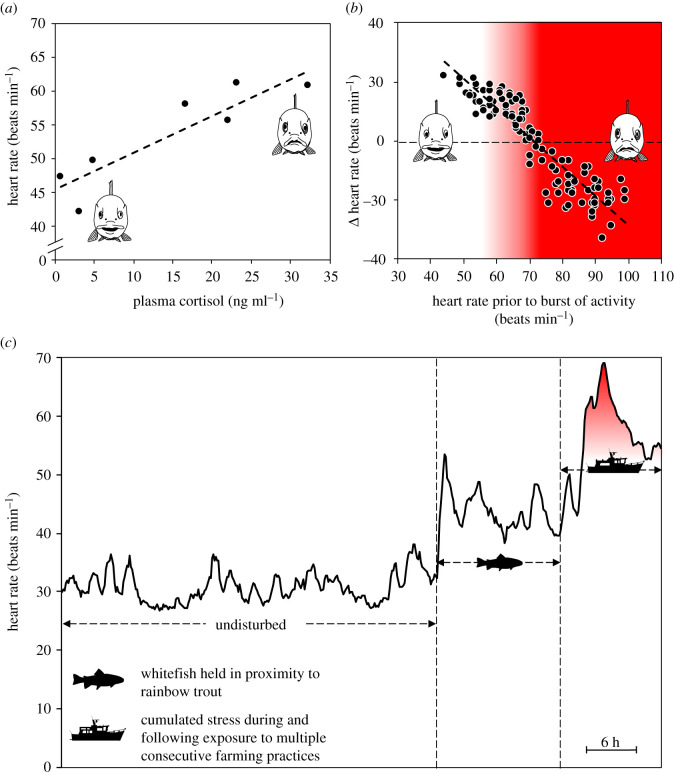Figure 1.
The use of heart rate bio-sensors for monitoring stress levels of freely swimming farmed fish. (a) Stress-induced elevations in heart rate are significantly correlated with levels of plasma cortisol in rainbow trout. (b) If severe enough, chronic stress-induced elevations in heart rate have been demonstrated to comprise physiological mechanisms in rainbow trout, whereby individuals were no longer able to increase, but instead decreased heart rate in response to acute stress events or spontaneous bursts of activity. (c) Long-term heart rate recordings of European whitefish demonstrate the chronic stress experienced when a prey species is held in close proximity to a predatory species (e.g. rainbow trout), as well as the cumulative effects of multiple consecutive farming practices (e.g. crowding, brailing and transportation). (a–c) are adapted from [15], [35] and [36], respectively.

